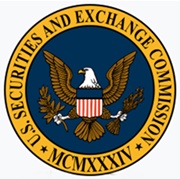US Supreme Court limits SEC’s power to recover ill-gotten profits
06 Jun 2017
 The US Supreme Court yesterday cut the Securities and Exchange Commission's power to recover ill-gotten profits from defendants' misconduct. According to commentators, the move will handover Wall Street firms a victory and deal another blow to the regulator's enforcement powers.
The US Supreme Court yesterday cut the Securities and Exchange Commission's power to recover ill-gotten profits from defendants' misconduct. According to commentators, the move will handover Wall Street firms a victory and deal another blow to the regulator's enforcement powers.
In a 9-0 ruling, the Supreme Court found that the SEC's recovery remedy known as "disgorgement" was subject to a five-year statute of limitations. The justices ruled in favour of New Mexico-based investment adviser Charles Kokesh, who had earlier been ordered by a judge to pay $2.4 million in penalties plus $34.9 million in disgorgement of illegal profits after he was sued by the SEC.
The decision marked the second time since 2013 that the Supreme Court had restrained the SEC's enforcement powers. In the earlier case, called Gabelli vs. SEC, the justices said in a unanimous ruling that civil monetary penalties were also subject to a five-year time bar.
According to commentators, the ruling comes as a major victory for Wall Street firms, whose Securities industry and financial markets association trade group had urged the justices to curb the SEC's powers in order to provide more certainty and predictability to the enforcement process.
Justice Sonia Sotomayor wrote that disgorgement counted as a penalty and was therefore bound by a five-year statute of limitations that already applied to "any civil fine, penalty or forfeiture."
The SEC sued Kokesh in 2009 for misappropriating investors' money. His penalties covered conduct within the five-year statute of limitations. However, the disgorgement covered conduct that mostly occurred outside that time frame.
With the court's decision, the 10th Circuit Court of Appeals ruling that ordered Charles Kokesh to pay $34.9 million in profits stands reversed.
Kokesh had misappropriated the amount from four business development companies from 1995 to 2009.
According to commentators, at issue the SEC's remedy known as "disgorgement," which was used to penalise those accused of committing financial crimes. The SEC has powers to fine a person or business for breaking the law and disgorgement was meant to seize profits earned from that criminal activity as another sanction.
The 10th Circuit had said disgorgement was not a penalty and therefore not subject to the statute of limitations.



















